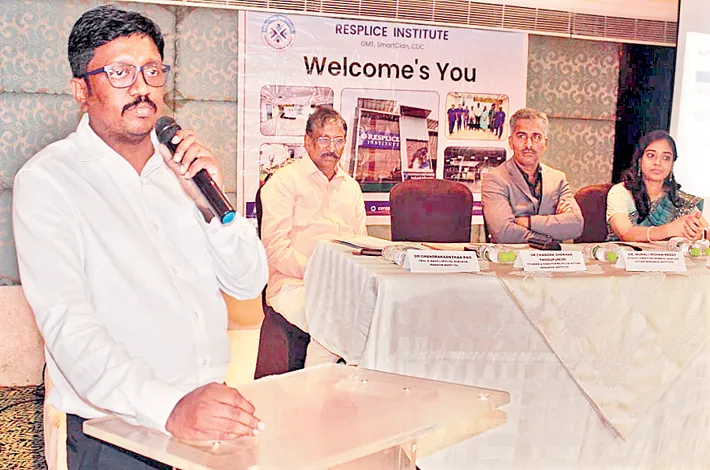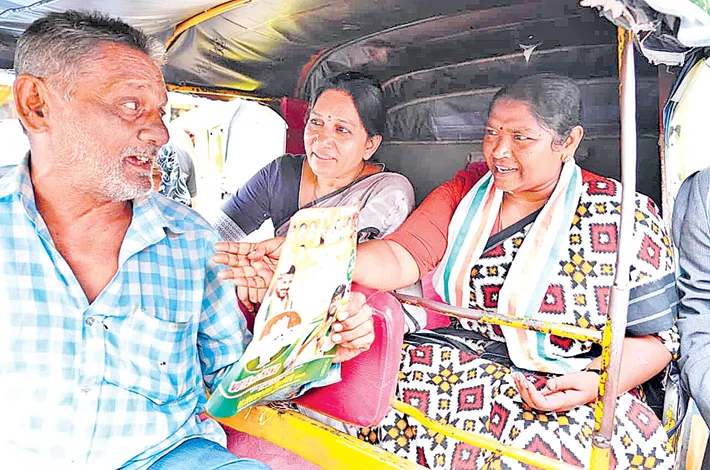The Secret of Mahadevpur’s Singing Stream
13-07-2025 12:00:00 AM

Ten-year-old Anjali loved the stream more than anyone. Every afternoon, after helping her Amma with chores, she’d race to its banks, her bare feet kicking up dust along the dirt paths. Her best friend, Ravi, always joined her. Ravi, with his mischievous grin and endless curiosity, was the kind of boy who’d poke a stick into any mystery just to see what happened.
In the heart of Telangana, nestled among rolling hills and golden fields, lay the small village of Mahadevpur. It was a place where the sun painted the mornings with warmth, and the evenings buzzed with the chatter of children playing near the village stream. This wasn’t just any stream—it was Mahadevpur’s pride, a crystal-clear ribbon of water that seemed to hum a gentle tune as it flowed. The villagers called it the Singing Stream, and they believed it held a special magic.
Ten-year-old Anjali loved the stream more than anyone. Every afternoon, after helping her Amma with chores, she’d race to its banks, her bare feet kicking up dust along the dirt paths. Her best friend, Ravi, always joined her. Ravi, with his mischievous grin and endless curiosity, was the kind of boy who’d poke a stick into any mystery just to see what happened.
One scorching summer day, as Anjali and Ravi sat by the stream, something strange happened. The stream’s usual melody—a soft, cheerful hum—faltered. It sounded like a song interrupted, as if the water itself was coughing. Anjali frowned, dipping her fingers into the cool flow. “Ravi, do you hear that? It’s not singing properly.”
Ravi tilted his head, listening. “You’re right. It sounds… sad. Maybe the stream’s tired of singing the same tune every day!” He grinned, but Anjali wasn’t amused.
“It’s not a joke, Ravi. Something’s wrong. The stream’s never sounded like this before.”
The two decided to investigate. They followed the stream’s path upstream, past the paddy fields where farmers bent low under straw hats, past the temple where the priest chanted evening prayers, and into a thicket of wild bushes. The stream grew narrower here, its song fainter, like a whisper. Anjali’s sharp eyes caught something odd—a pile of strange, shiny objects half-buried in the mud near the stream’s source, a small spring bubbling from the earth.
“Ravi, look!” she gasped, pointing. The objects were plastic bottles, rusty cans, and torn bags, all tangled in the roots of the bushes. The spring’s water, usually clear, was murky, choked with debris.
Ravi’s face fell. “Who would do this? This is where the stream starts! No wonder it’s not singing.”
Anjali clenched her fists. “We have to fix this. The stream’s like our friend—it’s always there for us, giving us water, fish, and its song. We can’t let it stay like this.”
That evening, Anjali and Ravi gathered the village children—Lakshmi, who loved telling stories; little Kiran, who could climb anything; and even shy Priya, who knew every bird in Mahadevpur by its call. At the banyan tree square, Anjali stood on a rock, her voice steady. “The Singing Stream is sick because people have been throwing rubbish near its source. We need to clean it up, but we can’t do it alone. Will you help?”
The children cheered, their eyes bright with purpose. But Priya raised a timid hand. “What if the elders don’t listen? They’re the ones throwing things there.”
Anjali nodded. “Then we’ll show them why the stream matters. Let’s make it sing again first.”
The next morning, before the sun grew too fierce, the children marched to the spring, armed with baskets and cloth sacks. Anjali organized them: Ravi and Kiran pulled out the heavy cans, Lakshmi and Priya sorted the plastics, and the others carried the rubbish to a pit outside the village. The work was hard, and the sun beat down mercilessly, but the children sang songs to keep their spirits high, mimicking the stream’s lost melody.
As they worked, something wonderful happened. The spring began to bubble more freely, its water clearing little by little. By noon, the pile of rubbish was gone, and the stream’s hum grew stronger, almost like a thank-you. The children clapped, their faces smeared with mud but glowing with pride.
But Anjali knew cleaning wasn’t enough. “We need to make sure this doesn’t happen again,” she told Ravi. They came up with a plan. That evening, they invited the whole village to the stream. The children had prepared a surprise: Lakshmi told a story about a magical stream that stopped singing when people forgot to care for it, and Priya taught everyone a song about keeping the water clean. Even Kiran, usually too shy to speak, showed the elders the pile of rubbish they’d collected.
The villagers were stunned. Anjali’s father, a farmer, scratched his head. “We didn’t realize we were hurting the stream. We’ve been careless, throwing things anywhere.” The village head, an old woman named Saroj Amma, stepped forward. “These children have shown us what we’ve forgotten. The Singing Stream is Mahadevpur’s heart. We’ll make rules—no more rubbish near the water. And we’ll teach everyone to care for it.”
From that day, Mahadevpur changed. The villagers set up bins for rubbish, and the children formed a “Stream Guardians” club, checking the spring every week. The Singing Stream’s melody returned, louder and sweeter than ever, as if it was grateful. Anjali and Ravi often sat by its banks, listening to its song, their hearts full. One evening, as the stars twinkled above, Ravi nudged Anjali. “You know, I think the stream’s magic is real. It brought us all together.”
Anjali smiled. “Maybe it is. But I think the real magic is us—when we work together, we can do anything.” And so, the Singing Stream flowed on, its melody weaving through Mahadevpur, a reminder that even the smallest voices, like those of children, could make a big difference.








